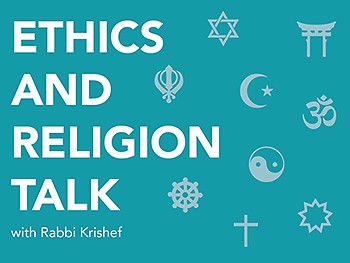The Reverend Colleen Squires, minister at All Souls Community Church of West Michigan, a Unitarian Universalist Congregation, responds:
“There is no concept of punishment in Unitarian Universalism while you are living or after your death. This is an idea that is foreign to our faith. Our faith asks us to affirm the inherent worth and dignity of every person. If we fail to live up to that Principle there is no church dictated form of punishment however a person may feel bad for coming up short and may hopefully work to correct or make amends to the person they have let down.”
Dr Sahibzada, the Director of Islamic Center and Imam of the Mosque of Grand Rapids, responds:
“Life in the Hereafter gets its status according to the shape of life one has spent in this world. God will deliver His judgement on resurrection day about worldly life based on righteous or evil deeds. The person will end up in heaven or hell. It is entirely the absolute authority of God to decide under Justice and Mercy what kind of sinful believers or disbelievers’ punishment will be and for how long. The forgiveness and Mercy dominate His other characteristics. Therefore, He informs for the best, not to be disappointed from His limitless Mercy.”
Fred Stella, the Pracharak (Outreach Minister) for the West Michigan Hindu Temple, responds:
“Hindu cosmology includes the concept of samsara, the wheel of birth and death. This means that the soul goes through multiple lifetimes before enlightenment is achieved. Each material existence is an opportunity to draw closer to God. But we might not take that opportunity and lead our lives in a more hedonist fashion. The lives we experience are always a mix of pain and pleasure, joy and sorrow. We bring both light and shadow to ourselves by our past actions and states of consciousness. It is wise not to consider the darker, more challenging events as ‘punishments.’ The more evolved reaction to the parts of life that seem negative would be to ask, ‘How can I respond to this in a way that will allow for greater spiritual growth?’
“It is central to Hindu theology that no soul is subjected to any form of eternal perdition. The soul is a part of God and can never be separated from that Divinity.”
Father Michael Nasser, who writes from an Eastern Christian perspective and is Pastor of St. Nicholas Orthodox Christian Church, responds:
“Eastern Orthodox Christianity developed outside of the legal and juridical emphasis in which Western Christianity (both Catholicism and Protestantism) developed its idea of salvation after death. Orthodox Christianity has always seen the consequences of life after this life more as just that: consequences. When we live our lives growing closer to God by walking the way He has set before us, we get closer to experiencing the natural consequences of that unity: a growing experience of paradise--even in this life--but fully in the next. Conversely, when we live our lives distancing ourselves from God and the path that He has set for us to follow, we progress in experiencing what has often been called ‘Hell,’ the loneliness, darkness and misery which we can also begin to experience in this life, and only in its fullness in the next.”
Rev. Ray Lanning, a retired minister of the Reformed Presbyterian Church of North America, responds:
“Because God is what He is (Exodus 3:14) and does not change (Malachi 3:6), He punishes sin in this life and the next. ‘God is indeed merciful, but also just; therefore His justice requires that sin which is committed against the most high majesty of God be also punished with extreme, that is, with everlasting punishment of body and soul’ (Heidelberg Catechism, Q. 11). There will be punishments after you die, proportionate to the guilt of your sins, if you die in them.
“Christ speaks of being shut out of the kingdom of heaven (Matthew 25:1-13) and ‘cast out into outer darkness’ (Matthew 8:12), where ‘there shall be wailing and gnashing of teeth.’ In a famous parable Christ describes ‘a certain rich man’ who after death is tormented in flame and plagued with unquenchable thirst (Luke 16:19-31). Elsewhere Christ warns of a worm that ‘dieth not’ and fire that ‘is not quenched’ (Mark 9:48).
“All these metaphors use our present experience to express something much more profound. They foretell the future of the unrepentant sinner who has lived all his days without God and without grace. His punishment after death is to continue in that state forever. That is hell: forever without God and without grace. ‘Abandon all hope, all ye who enter here’ (Dante). Perhaps the greatest torment will be the knowledge that this is the future you made for yourself by your own folly.”
This column answers questions of Ethics and Religion by submitting them to a multi-faith panel of spiritual leaders in the Grand Rapids area. We’d love to hear about the ordinary ethical questions that come up on the course of your day as well as any questions of religion that you’ve wondered about. Tell us how you resolved an ethical dilemma and see how members of the Ethics and Religion Talk panel would have handled the same situation. Please send your questions to [email protected].
The Rapidian, a program of the 501(c)3 nonprofit Community Media Center, relies on the community’s support to help cover the cost of training reporters and publishing content.
We need your help.
If each of our readers and content creators who values this community platform help support its creation and maintenance, The Rapidian can continue to educate and facilitate a conversation around issues for years to come.
Please support The Rapidian and make a contribution today.
